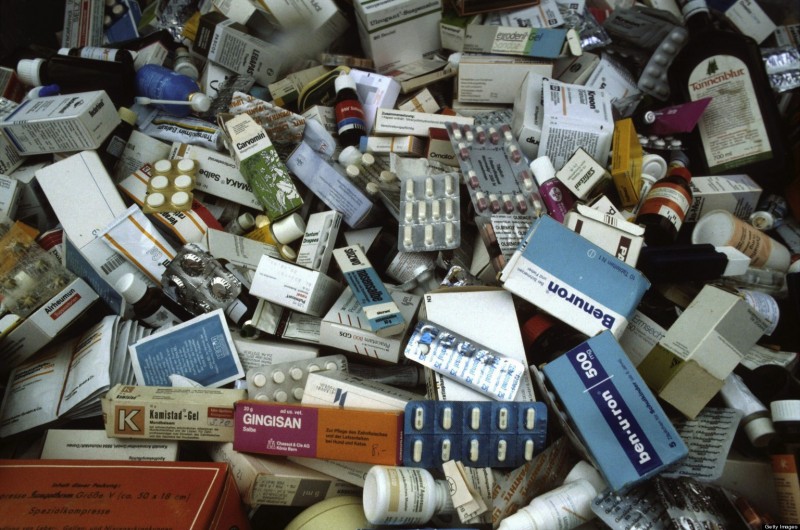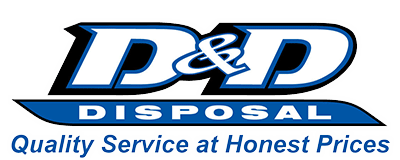 One of the things people never think of when ordering a roll off dumpster to clean out a house is who will see what you throw out and is there anything sensitive that should have special precautions taken to ensure they are disposed of safely. Things such as sensitive documents, photographs, letters, personal effects and of course medication. Many roll off dumpsters ordered for house cleanouts are for homes where the family member has either entered assisted living or has passed away. In many instances, they leave behind large amounts of unused medications.
One of the things people never think of when ordering a roll off dumpster to clean out a house is who will see what you throw out and is there anything sensitive that should have special precautions taken to ensure they are disposed of safely. Things such as sensitive documents, photographs, letters, personal effects and of course medication. Many roll off dumpsters ordered for house cleanouts are for homes where the family member has either entered assisted living or has passed away. In many instances, they leave behind large amounts of unused medications.
Medications are serious business and so is proper disposal of those medications. The Federal Government has set forth guidelines for proper disposal of medications.
FDA and the White House Office of National Drug Control Policy developed federal guidelines that are summarized here:
· Follow any specific disposal instructions on the prescription drug labeling or patient information that accompanies the medicine. Do not flush medicines down the sink or toilet unless this information specifically instructs you to do so.
· Take advantage of community drug take-back programs that allow the public to bring unused drugs to a central location for proper disposal. Call your city or county government’s household trash and recycling service (see blue pages in phone book) to see if a take-back program is available in your community. The U.S. Drug Enforcement Administration, working with state and local law enforcement agencies, periodically sponsors National Prescription Drug Take-Back Days. disclaimer icon
· If no disposal instructions are given on the prescription drug labeling and no take-back program is available in your area, throw the drugs in the household trash following these steps. 1. Remove them from their original containers and mix them with an undesirable substance, such as used coffee grounds or kitty litter (this makes the drug less appealing to children and pets, and unrecognizable to people who may intentionally go through the trash seeking drugs). 2. Place the mixture in a sealable bag, empty can, or other container to prevent the drug from leaking or breaking out of a garbage bag.
Ilisa Bernstein, Pharm.D., J.D., FDA’s Deputy Director of the Office of Compliance, offers some additional tips:
· Before throwing out a medicine container, scratch out all identifying information on the prescription label to make it unreadable. This will help protect your identity and the privacy of your personal health information.
· Do not give your medicine to friends. Doctors prescribe medicines based on a person’s specific symptoms and medical history. A medicine that works for you could be dangerous for someone else.
· When in doubt about proper disposal, talk to your pharmacist.
Bernstein says the same disposal methods for prescription drugs could apply to over-the-counter drugs as well.
Why the Precautions?
Prescription drugs such as powerful narcotic pain relievers and other controlled substances carry instructions for flushing to reduce the danger of unintentional use or overdose and illegal abuse.
For example, the fentanyl patch, an adhesive patch that delivers a potent pain medicine through the skin, comes with instructions to flush used or leftover patches. Too much fentanyl can cause severe breathing problems and lead to death in babies, children, pets, and even adults, especially those who have not been prescribed the medicine.
“Even after a patch is used, a lot of the medicine remains in the patch,” says Jim Hunter, R.Ph., M.P.H., a pharmacist reviewer on FDA’s Controlled Substance Staff, “so you wouldn’t want to throw something in the trash that contains a powerful and potentially dangerous narcotic that could harm others.”
Now leaving powerful and dangerous medications in an unsecured container outside your home may not seem like such a good idea after reading this information. I hope this information makes your house cleanout roll off dumpster rental a safe experience.
Be safe, be well and most of all BE HAPPY!
Dale Olander
President
D&D Disposal
(732) 341-6900

